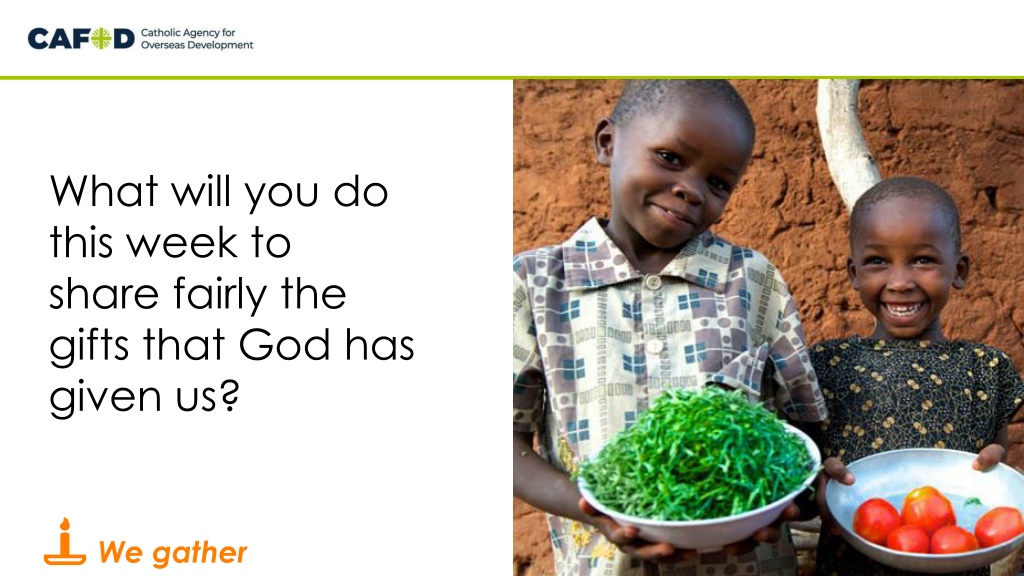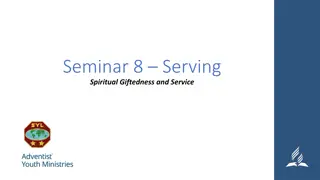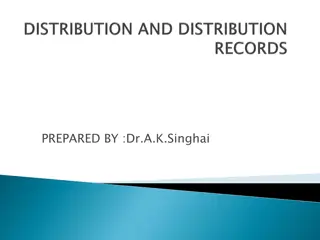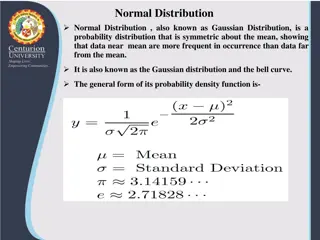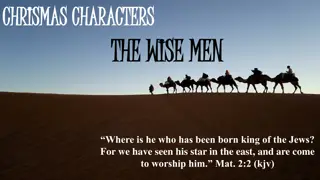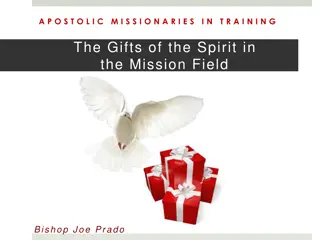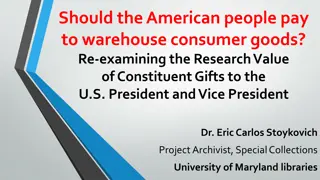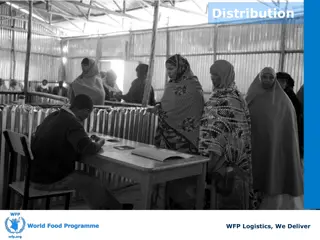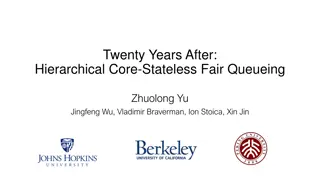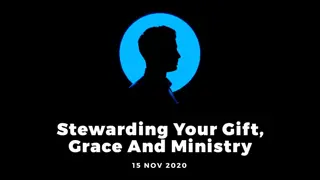Reflecting on Fair Distribution of God's Gifts
The Gospel reading of Matthew 20:1-16 tells the parable of workers in a vineyard, highlighting God's generosity and fairness in rewarding all workers equally, regardless of when they started working. It emphasizes the importance of sharing our gifts and blessings with others, ensuring everyone has enough. Through this message, we are reminded to be open-hearted and accept God's teachings, treating others with kindness and fairness, just as he has treated us.
Download Presentation

Please find below an Image/Link to download the presentation.
The content on the website is provided AS IS for your information and personal use only. It may not be sold, licensed, or shared on other websites without obtaining consent from the author. Download presentation by click this link. If you encounter any issues during the download, it is possible that the publisher has removed the file from their server.
E N D
Presentation Transcript
What will you do this week to share fairly the gifts that God has given us? We gather
Generous and giving God, you created the world with enough for everyone. Help us to share what we have been given and make sure all your people have enough. Amen.
Open our hearts, O Lord, to accept the words of your Son.
Gospel: Matthew 20:1-16 The Kingdom of heaven is like this. Once there was a man who went out early in the morning to hire some men to work in his vineyard. He agreed to pay them the regular wage, a silver coin a day, and sent them to work in his vineyard. He went out again to the market place at nine o'clock and saw some men standing there doing nothing, so he told them, You also go and work in the vineyard, and I will pay you a fair wage. So they went. Then at twelve o'clock and again at three o'clock he did the same thing. It was nearly five o'clock when he went to the market place and saw some other men still standing there. Why are you wasting the whole day here doing nothing? he asked them. No one hired us, they answered. Well, then, you also go and work in the vineyard, he told them. We listen
Gospel: Matthew 20:1-16 When evening came, the owner told his foreman, Call the workers and pay them their wages, starting with those who were hired last and ending with those who were hired first. The men who had begun to work at five o'clock were paid a silver coin each. So when the men who were the first to be hired came to be paid, they thought they would get more; but they too were given a silver coin each. They took their money and started grumbling against the employer. These men who were hired last worked only one hour, they said, while we put up with a whole day's work in the hot sun yet you paid them the same as you paid us! We listen
Gospel: Matthew 20:1-16 Listen, friend, the owner answered one of them, I have not cheated you. After all, you agreed to do a day's work for one silver coin. Now take your pay and go home. I want to give this man who was hired last as much as I have given you. Don't I have the right to do as I wish with my own money? Or are you jealous because I am generous? And Jesus concluded, So those who are last will be first, and those who are first will be last. We listen
What do you remember from the Gospel reading? A landowner went out to hire some workers for his vineyard. He took on new workers at the start of the day and three more times later in the day. He promised them all a fair wage. The workers who arrived first expected to be paid more than the workers who arrived near to the end of the day. After all, they were hot and tired and had worked very hard all day, while some of the others have only worked for one hour. How did the workers who had been hired first feel when they saw that everyone was being paid the same wage? They thought it was unfair. They were angry and complained. Do you agree with them? Why/why not? We respond
The landowner says that he has paid the first workers exactly what they agreed was fair at the beginning of the day. He says that they have no reason to be cross that he is generous to the other workers, that he can do what he likes with his own money. Can you think of a time when you felt something was unfair? How did it make you feel? What did you do about it? Who do you think the landowner in the story is supposed to be? What is Jesus trying to tell us? Jesus is showing us that God s idea of fairness (sometimes we use the word justice), is different from ours. God s fairness is about making sure that every single person gets what they need, no matter what their situation. We respond
God gives us what we need and not just what others think we deserve. God is generous and created a world with enough for absolutely everyone. But do you think everyone in our world does have enough money? Or even enough food and water? Why/why not? Do you think this is fair? Do you think this is what God wants? How can we help make sure that all people get their fair share of the good things that God has given us? We can try hard not to take more than we need and make sure we don t waste food, water or energy. We respond
We can be generous with what we have, like the landowner in the story, sharing what we have with others. And we can try to make a change to our world so that it is a fairer place for all people to live. Sometimes we can make a difference by ourselves. And sometimes we do this by writing to our local MP or other people who have power asking them to make the changes. What will you do this week to try to help make sure that all people around the world get their fair share of the things that God has given for us all? We respond
We pray for world leaders: that they may do all they can to make the world a fairer place and make sure that all people have their fair share. Lord, in your mercy We pray for our sisters and brothers around the world, especially those who are poor: that every single person may have what they need to live. Lord, in your mercy
We pray for our school, family and friends: that we may be generous and fair to all people in our one global family. Lord, in your mercy
Living Lord, we give thanks for your generosity and love. Help us to take no more than we need, to share all that we have and to work together for change so that the world becomes a fairer place for everyone. Amen.
Invite the children to colour in the accompanying illustration and on the back to write or draw how they will help make sure that everyone gets their fair share of the things that God has given us in the coming week. Take a sheet of paper and divide it into two columns. In one column encourage the children to write or draw all the things that they think are unfair in the world. In the other column ask them to write or draw how they can help change these things to make the world a fairer place. Encourage the children to join in with our Get Creative for Climate Justice project to take action for our global neighbours. More information is available at cafod.org.uk/demandchange Going forth
